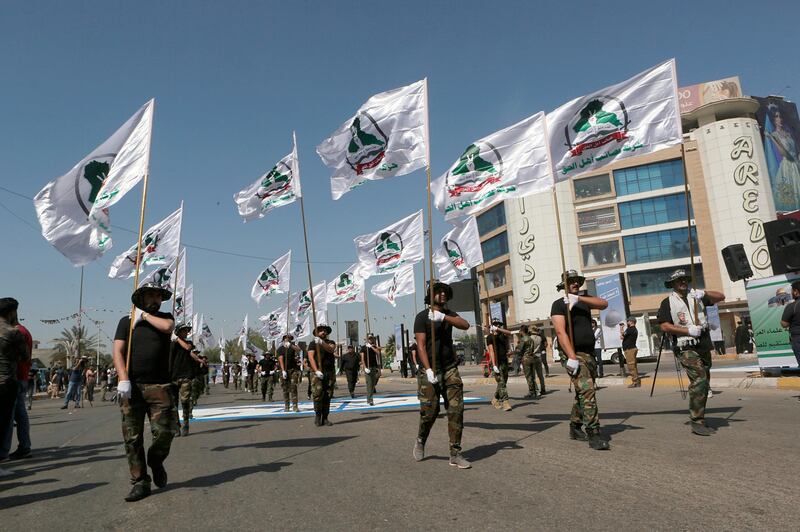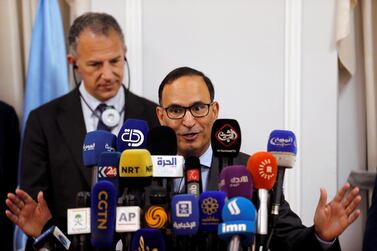Iraq's security and paramilitary forces on Sunday launched a military operation along the border with Syria to clear the area of ISIS militants that have remained since the group's territorial defeat, the military said in a statement.
Although Iraq declared victory against ISIS in July 2017, the extremists have launched an insurgency and have carried out deadly attacks in the country.
The military said the operation that began at sunrise was being carried out by Iraqi troops and members of the Popular Mobilisation Forces that largely consist of Iran-backed militias.
It said the operation will last several days and was the first phase of the Will of Victory Operation securing the western province of Anbar and the central and northern regions of Salahuddin and Nineveh.
"We press on the hands of our heroic forces that will achieve victory with the will of its heroes against the gangs of Daesh," said Iraqi Prime Minister Adel Abdul-Mahdi using an Arabic acronym to refer to ISIS. "May God protect you and make you victorious."
ISIS once held large parts of Syria and Iraq where it declared a caliphate in 2014. The extremists lost in March the last territory they controlled in Syria.
Anger in Sunni areas of Iraq laid the groundwork for ISIS to rise in 2014, when they captured the northern Iraqi city of Mosul. The group's leader Abu Bakr Al Baghdadi would deliver a sermon from the pulpit of the Al Nuri Mosque in the city in which he declared a self-proclaimed Islamic state.
The de facto state attracted thousands of foreign fighters and even through the group no longer controls any territory, it retains sleeper cells in both Iraq and Syria. Al Baghdadi is yet to be captured and made a rare appearance on camera in April. It was his first propaganda video appearance in almost five years.
While the Iraqi military and allied militias have spearheaded the defeat of ISIS in Iraq with support from the US-led coalition, the Syrian Kurds were the dominant force in beating the group in Syria, retaking the cities of Raqqa, Kobane and Manbij from the group.






